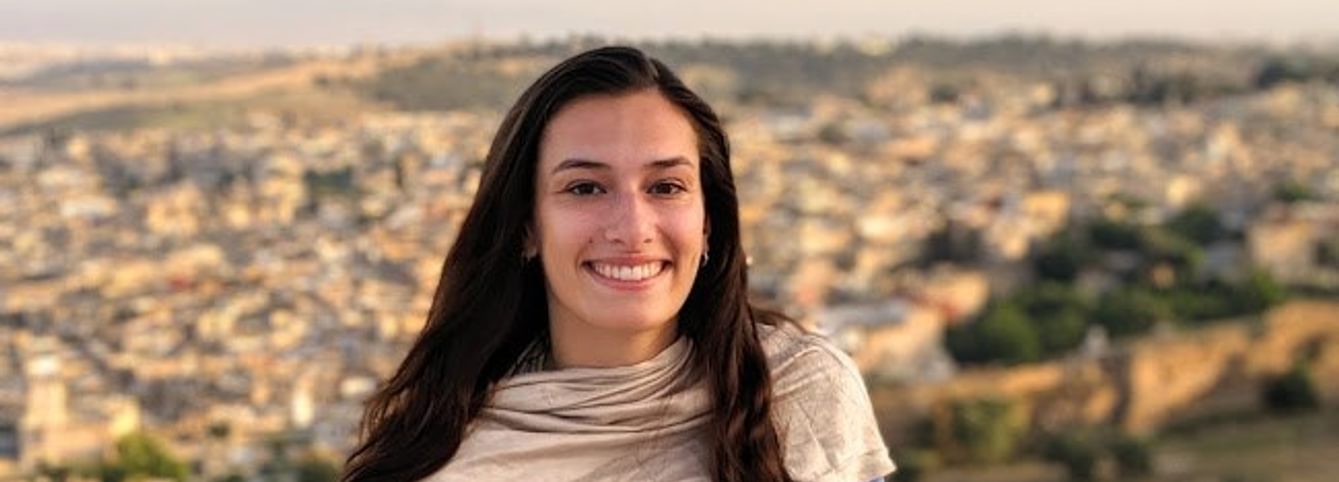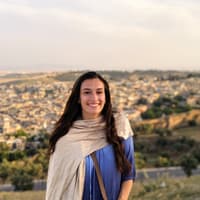Clara Sherwood
Clara Sherwood is an alumna of the 2020 CLS Arabic virtual institute hosted by Arab American Lanugage Institute in Meknes, Morocco. She’s a junior at Washington & Jefferson College majoring in Spanish, international relations, and a thematic major titled Music & Conflict Resolution.
Getting to Know Clara
I grew up in a small town in Western Pennsylvania where I was an avid lacrosse player, life-long member of the swim team, and the vocalist for my high school’s jazz band. When I had free time, I enjoyed sailing and learning languages (Spanish and Arabic). Learning languages has helped me to understand the complexities of international politics and different cultures and has helped shape me into a young scholar-activist.
Why Arabic?
I was drawn to learn Arabic because of my interest in the Middle East and Northern Africa, its relevance to American foreign policy, and because it is a beautiful language, both visually and orally. Additionally, I want to help solve refugee and immigration issues abroad and knew that Arabic was a crucial language to know in order to be an effective diplomat. Arabic has opened numerous doors for me as an undergraduate student and I know it will continue to do so as I enter the professional world. I plan to continue cultivating my Arabic skills so I can work abroad.
Arabic is a language that challenges you in every facet. You must learn to read and write from right to left, to make sounds your mouth has never formed, and master a whole new syntax for your sentences. It is a challenge, but once you succeed, you are able to speak a challenging and beautiful language that emulates music and unlocks doors all across the world.
A Pronunciation Mix-up
Although I was a member of the CLS virtual program, I was still participating in cultural exchanges daily. Perhaps one of the more amusing mistakes that I made while practicing Arabic was mixing up the words for “people” and “pineapple.” The words are pronounced “al-anahs” and “al-ananas” respectively. I was speaking about my town, and my professor was utterly confused at why I was describing my street populated full of friendly pineapples. Luckily, she was able to rectify this mistake before I went abroad in a professional capacity and proudly talked about meeting many fine “pineapples” to colleagues.
Impact of CLS
Since completing the CLS Program, I have become more comfortable using my Arabic skills with classmates, professors, and the people I work with through my internship. The CLS Program gave me the confidence to start a program on my campus called “Refugee Voices” during which I help facilitate conversations between students and refugee guests. While planning these conversations, I have often used my Arabic skills to clarify a question and have continued down my path of becoming culturally fluent that the CLS program helped me start.
A Note for Applicants
Although it was disappointing to not go abroad, I was still able to learn a tremendous amount of Arabic through the virtual institute. Regardless of how this summer turns out, I would always recommend students apply for CLS because it is always worth it!



